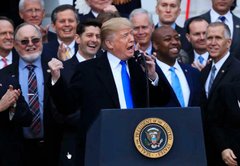Create a health savings account
Donald Trump
"Allow individuals to use Health Savings Accounts (HSAs). Contributions into HSAs should be tax-free and should be allowed to accumulate."
Trump-O-Meter

Promise Broken

